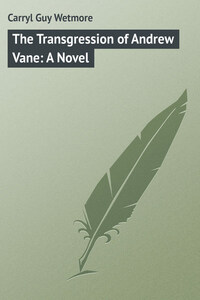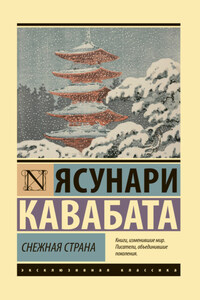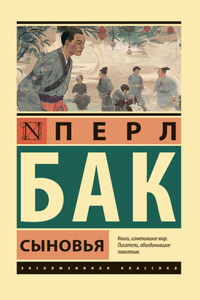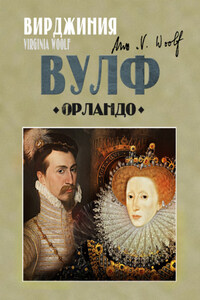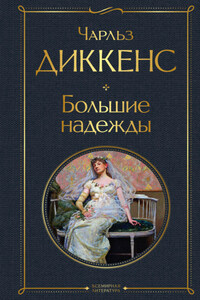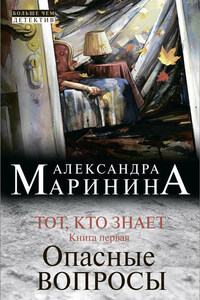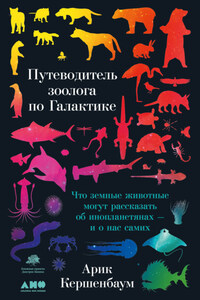For months past, she had felt that she was weakening, that the crescent wretchedness of five long years – an uninterrupted descent from level to level, on each of which the thorns of disillusion caught at, and tore from her, some shred of hope or self-respect – had done its work at last. Her courage and her faith, inherited, the one from the mental, the other from the moral, vigour of a rigid and uncompromising Puritan ancestry, were slipping from her. What the end was to be, she did not dare to ask; but it lay there ahead, grim and ominous, gradually taking form, through the mist of the immediate future. Its very suggestion of divergence from all that was familiar to her, of being even a degree more monstrous than what she had already suffered, sickened and appalled her, who had never known a dread of mere death, but drew back with unspeakable fear before the looming of this unknown, ultimate degradation.
John Vane had wooed his wife with the easy confidence born of adequate position, adequate means, and more than adequate ability. Four years of Harvard had taught him to believe life in the little Western town which had been his birthplace, to be, for a man of literary bent, a practical impossibility; and when he stepped easily from the halls of his Alma Mater into the offices of a Boston magazine, it was a practical renunciation of his early environment, and an expression of his resolve to follow in the actual as well as the metaphorical footprints of some of the greatest figures in American literature.
Six months later, he announced his engagement to Helen Sterling, the only daughter of a pioneer in copper, whose character had long since built him up a reputation, to which, later, the five figures of his income lent an added lustre. From first to last, from the occasion of the young collegian's presentation to the reigning belle of her season to the moment when she said, "I, Helen, do take thee, John" – and the rest of it – there was, by way of proving the rule, never a stumbling-block in the exceptionally smooth course of their love. They were made for each other, people said, and no one subscribed more confidently to this opinion than themselves.
But – and does ever a honeymoon pass without the uneasy awakening of that latent 'But'? – Helen was not a month older before she was forced to the unwilling conclusion that there was a singular, intangible something lacking in her husband's character. It was not that he was not gifted; for that, his most casual acquaintance knew him to be; – or in love with her; for of that he gave evidence almost as conclusive as would have been furnished by the ceaseless reiteration of that spoken devotion which a woman craves, without hope of receiving, from the man she loves. But things had come to him so easily, so independent of any effort of his own, that he was become the chief of optimists, imbued with the serene and confident laisser aller of the clan; and, now that association was making her intimate with his methods of work, she found them to be wholly haphazard, inspired merely by the whim of the moment, unregulated by any remotest evidence of system. His performances were the meaningless flashes and snaps of Chinese crackers, not the steady and purposeful, if less imposing, fire of a skilfully laid fuse, leading on to great results. His confidence in his own ability, in the certainty of his ultimate triumph, was so absolute that he was content with the minimum of endeavor, oblivious to the fact that only statues can remain thus passive with the assurance that laurel wreaths will be laid before them. He did not realize that the living must pluck their laurels for themselves.
Lacking the initiative which is its indispensable ally, Vane nevertheless possessed all the impatience of restraint or routine characteristic of the creative faculty. A year of editorial work was sufficient to convince him that it was not possible for such a temperament as his to be trammelled by fixed hours, and strait-jacketed by observance of detail. He resigned his position, on the plea of devoting himself entirely to writing, and there ensued a period during which he sunned himself in society's favour, and received his share of flattery in return for several trifles contributed to the magazines, but created nothing worthy even of the infinitesimal effort which he made. A man had to think, to arrange, to compose, he told his wife. Rome was not built in a day, and the mere manual act of transferring his thoughts to paper was a trifle, when contrasted with the process of incubation. So month after month dragged by, and little by little, as his novelty wore off, John Vane dropped out of society's consideration as a literary potentiality, and came to be regarded as nothing more than one of many good-looking, agreeable men-about-town, to whom, in the matter of his wife and his worldly weal, the Fates had been generous beyond the ordinary.
